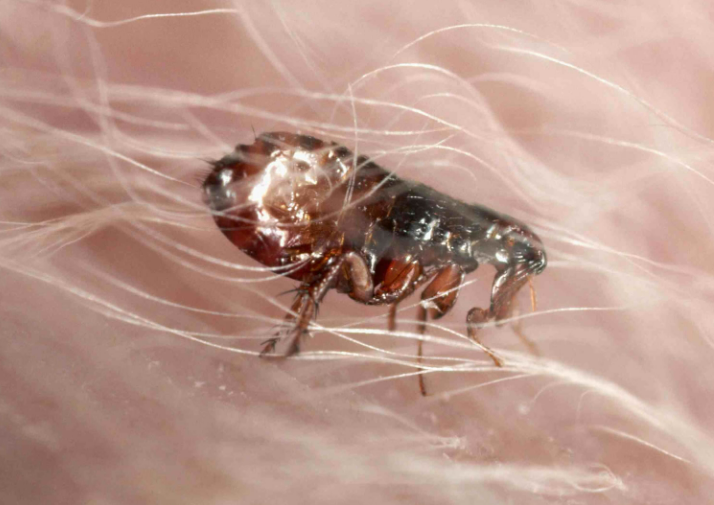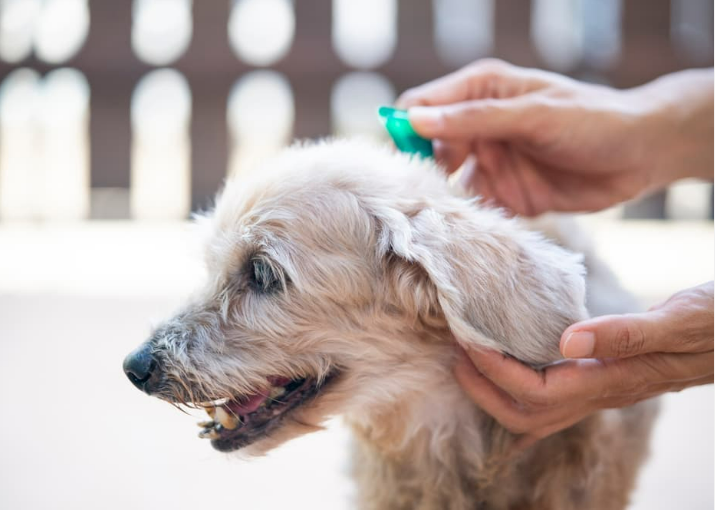
Fleas, those tiny, pesky parasites, can be a significant nuisance, affecting both pets and the comfort of homeowners. Fortunately, you can find effective flea removal strategies and protect your home by starting an online search.
These small insects are notorious for causing a range of issues, from mild irritation to serious health concerns. Therefore, it’s crucial to address a flea infestation by balancing natural remedies with professional extermination techniques.
Do Fleas Really Pose a Big Problem?
A flea infestation is not just a minor inconvenience; it represents a serious problem with wide-ranging effects. For pets, fleas are more than just irritating; they can cause intense itching and discomfort, leading to excessive scratching, skin infections, and even hair loss.
In severe cases, pets can develop an allergic reaction to flea saliva known as flea allergy dermatitis, which can result in significant skin damage. Beyond physical ailments, the constant discomfort can lead to behavioral changes in pets, such as increased anxiety and restlessness.
For humans, fleas can also be a source of annoyance, as their bites cause itchy, red welts, and in some cases, can transmit diseases such as typhus. The presence of fleas in a home can also indicate and contribute to unsanitary living conditions, attracting other pests and compounding the problem. So let’s not waste another moment—start exploring the best flea removal strategies today!
Natural Remedies for Flea Removal
Natural remedies are often the first line of defense against fleas, as they are generally safer for pets and the environment. One popular method is using diatomaceous earth, a powder that dehydrates fleas upon contact. Be sure to use food-grade diatomaceous earth and spread it on carpets and pet bedding to avoid harm to pets and humans.
Another approach involves creating a lemon spray by boiling lemons and using the cooled liquid as a natural flea repellent. This not only helps in flea removal but also leaves a pleasant scent.
Cedar chips are another effective option; placing them in garden areas or inside pet bedding can deter fleas naturally. For those interested in exploring more natural remedies, a wealth of information is available online to guide and educate.
Maintaining a Clean Environment
Maintaining a clean environment is crucial for preventing and controlling flea infestations. Regularly vacuuming carpets, floors, and furniture removes fleas in various life stages. Focus especially on areas where pets spend the most time. Washing pet bedding and other fabric items in hot water is also effective in eliminating fleas.
For severe infestations, steam cleaning can be particularly effective, as the high temperature kills fleas and their eggs. Online resources offer valuable insights into maintaining a flea-free environment through cleanliness and regular maintenance.
Chemical Treatments for Flea Removal

When natural remedies fall short, chemical treatments offer more potent solutions. Flea sprays, powders, and foggers contain insecticides that target fleas in various life stages. It’s crucial to adhere strictly to the manufacturer’s instructions to ensure safety and effectiveness.
Spot-on treatments and oral medications are additional options for pets, providing protection typically lasting a month. These chemical treatments should be used cautiously and preferably under veterinary guidance. For those exploring chemical options, thorough online research on their effectiveness and safety is advisable.
Consulting a Professional for Flea Removal
For severe infestations, seeking assistance from a professional exterminator may become essential. Professional flea removal services provide tailored solutions that are typically more effective than DIY methods. They assess the extent of the infestation accurately and apply treatments safely.
Moreover, professionals offer valuable advice on preventing future infestations. Although the average cost for these services is around $270, the expertise and thorough approach they provide can be priceless. For anyone dealing with a stubborn flea issue, researching professional flea removal services online can offer insights into what to anticipate and how to proceed effectively.
Integrating Pets into Flea Removal Strategies
Pets are typically the main hosts for fleas, underscoring the importance of treating them effectively in the flea removal process. Consistently using flea control products such as collars, shampoos, or topical treatments can notably lower the likelihood of infestations. It’s crucial to consult a veterinarian to select the most suitable and safe products for your pets.
Furthermore, regular grooming of pets aids in early detection and elimination of fleas. Pet owners can access abundant online resources that provide detailed guidance on integrating pet care into comprehensive flea removal strategies.
Don’t Let Fleas Cause You Discomfort
Removing fleas demands a holistic approach that integrates natural remedies, cleanliness, chemical treatments, professional services, and diligent pet care. Each method offers distinct advantages and considerations, making a combined approach often the most effective.
Whether choosing DIY methods or seeking professional assistance, conducting additional online research on flea removal empowers homeowners and pet owners alike to address this prevalent yet controllable issue. With this information, you can safeguard the comfort and security of your home effectively.
